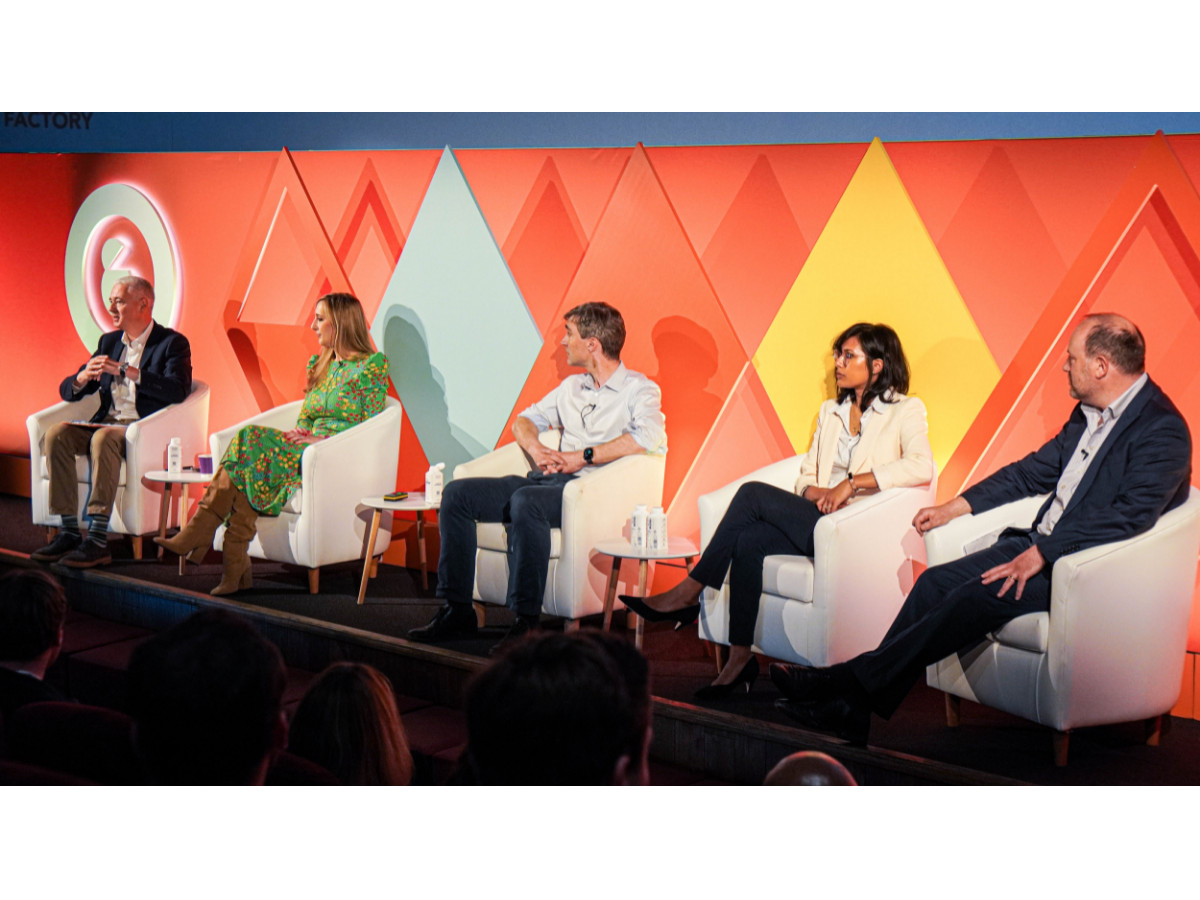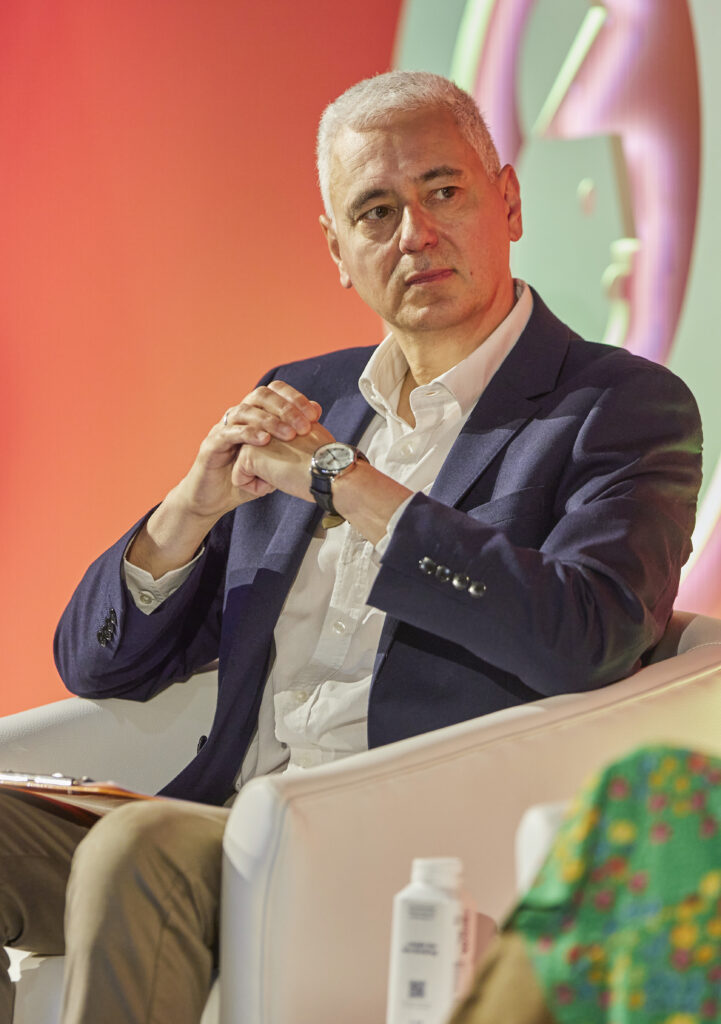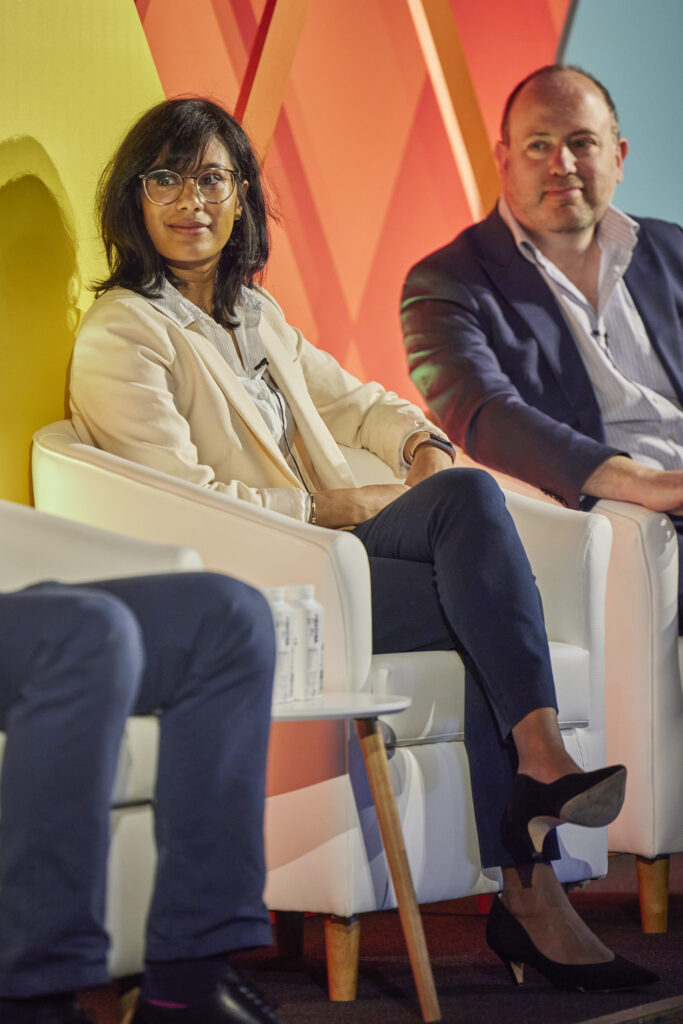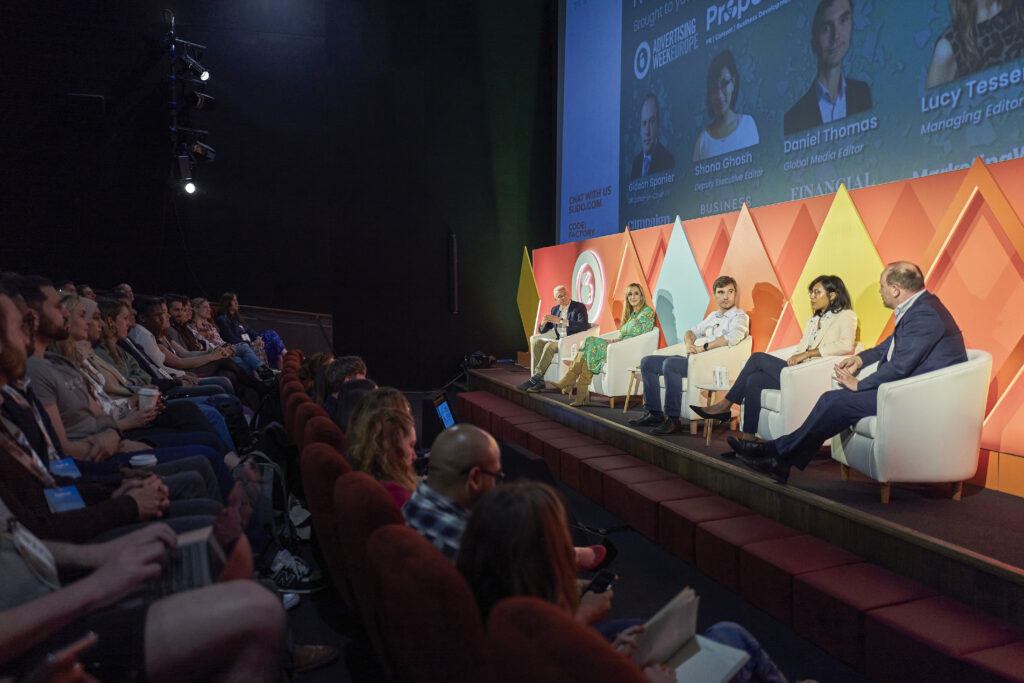
The marketing and media world is bubbling with innovation and creativity. But how do the journalists covering the sector make decisions on what to cover, and how can you persuade them your story is interesting enough to grab their attention?
At Advertising Week Europe 2023, Propeller Group turned the tables and put journalists under the spotlight at our Catching The Spark panel. Our inimitable Director of Content, Branwell Johnson, sat down with a panel of senior editors to find out exactly what they are looking for in a story – especially one framed as an ‘innovation’.
The panel included:
Gideon Spanier, UK editor-in-chief, Campaign
Daniel Thomas, Global Media Editor, Financial Times
Shona Ghosh, Deputy Executive Editor, Insider UK
Lucy Tesseras, Managing Editor, Marketing Week
Here’s what was said.
Defining innovation
Defining innovation and what it means to these media brands is important if looking to pitch them a story.
“At the Financial Times we want stories with impact,” Daniel Thomas said. “But on a day-to-day level you want stories which you could talk about to your friends or family. Real innovation will go beyond our media bubble and resonate into a broader societal narrative.”.
Shona Ghosh argued innovation means different things to different publishers, depending on their focus. “At Insider UK we think with a ‘tech first’ mindset. We know that we are really popular on social media sites like Reddit, and so our stories need to speak to these audiences in a way which is informed, but not always highly technical.”.
“Innovation is an interesting word,” mulled Gideon Spanier. “So much of it feels bound with technology – as the fusion of tech and creativity has driven so much change over the last decade. But there is a huge gap between innovation and technology. Innovation is about washing capsules as much as it is about AI. At Campaign, our focus is how much change impacts businesses.”
Lucy Tesseras agreed. “Marketing Week is about marketing for marketers,” she pointed. “So we look for stories which help marketers solve business problems. Another brand entering the Metaverse in itself isn’t an innovation story. But if it solved a business problem tangibly, it would be interesting to us.”.
Fads versus trends
Media seems to focus a lot of attention on the shiny and new. How do journalists sift through and separate the temporary fads from the meaningful trends?
“We need to see how the innovation helps businesses become better,” Lucy answered. “So with AI, we’ve recently seen Wickes use the technology to power segmentation and personalise creative. This helped it deliver £7m in incremental revenue. Innovation needs to work as a solution.”.
Gideon Spanier stressed the need for balance. “Our audiences are curious about things. Sometimes overly so. So you don’t want to be cynical – but you should be sceptical. Take the Metaverse, which had a lot of doubters. Then I did an event in the Metaverse and it was actually quite interesting. It’s good to try these things first hand before you judge them.”.
Shona Ghosh agreed. “There can be tension between what readers want and your own scepticism on certain subjects. You have to assess it first hand to feel qualified enough to speak to your audience in a way which serves them.”.
“We love fads!” grinned Daniel Thomas. “Explosions of excitement and interest are good for us. I was the third person in the world to try the Oculus at its unveiling. With things like the plant-based brand Beyond Meat, you could see the hype cycle in full swing. The fad is a short burst of concentrated attention – but you do see these innovations bed into society in interesting ways over longer periods of time.”.
Delivering the news
For PR and comms people it’s important to know what’s the best way to bring a story to a journalists’ attention. It seems it’s a personal preference for journalists.
“Most PR people know what is a story, and what isn’t,” said Daniel. “It’s part of the job to pitch. But I find email difficult to cut-through. Calling is good if you can demonstrate you have a real understanding of why the story is interesting.”
“Never call me!” Shona quickly followed on. “Never call – no voice notes. Emails are fine. Track who you are pitching and make sure you are approaching the right person. I still get pitches for jobs I had years ago!”.
“The most important thing is understanding who you are speaking to,” Lucy added. “When things are copy and pasted it’s very obvious.”
“Send stuff. Emails are best,” Gideon summarised. “How persistent you are is a difficult judgement call. You need to assess your relationship. An AI system for distributing news is not going to replace PR people anytime soon!”.
The final topic was “Do exclusives still matter?” to which the panel gave a uniform answer: “Yes”.
“An exclusive gives your publication advantage,” explained Gideon. “It means you are a step ahead on the subject – and the consequent analysis pieces. They keep us and our audiences ahead of the game.”


